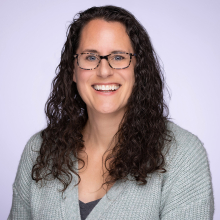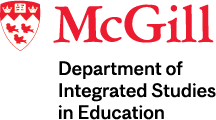Emily Sprowls
Faculty Lecturer

Emily Sprowls' work aims to collaborate with youth and teachers to address students’ concerns about sustainability issues, environmental justice, and climate change. Her interests lie at the intersections of science teacher education and environmental and sustainability education, and reflect her experiences as a K-12 science teacher and environmental educator in alternative, informal, and international settings. She has worked on curriculum development, teacher training and student assessment with schools and environmental non-profits throughout North America. Her action-oriented research seeks to work with teachers and students in co-creating more just ways of teaching and learning science. She studies collaborative, transdisciplinary learning among youth, teachers, and scientists in community-based initiatives that focus on student-led inquiry, such as after-school STEAM clubs. Her teaching and research are informed by her roles as a facilitator of professional learning communities of educators, and as a Critical Friends Group coach, as well as by collaborations with participatory, citizen science programs. As both a teacher and a researcher, Emily aims to connect science learning to the contexts of land and community in ways that are inclusive of diverse ways of coming to know, and that broaden understandings of what it means to do science or be a scientist.
- MESc, Social Ecology, Yale University, USA
- Secondary Science Teacher Certification, Southern Connecticut State University, USA
- BA, Biology, Kenyon College, USA
- Science Education
- Environmental and Sustainability Education
- Environmental justice
- Participatory science
- Collaborative learning
Allison Gonsalves (PI), Blane Harvey (Co-I), Diane Dechief (Co-I), Charlene Lewis-Sutherland (Collaborator), Emily Sprowls (Collaborator). Informal learning for sustainability in science, technology, engineering and mathematics (STEM) programs: Navigating emotions and identities to develop relational competencies. Social Sciences and Humanities Research Council Insight Development Grant, 2023-2025.
Sprowls, E. D. (2022). Bridging Boundaries Between ESE and Science Education Research and Practice through Collaborative Learning for Climate Justice. In Challenges for environmental and sustainability education research in times of climate crisis (pp. 133–136). Universiteit Gent. https://biblio.ugent.be/publication/8768733/file/8768735.pdf
Gonsalves, A. J., Sprowls, E. D., & Wiseman, D. (2021). Teaching Novice Science Teachers Online: Considerations for Practice-Based Pedagogy. LEARNing Landscapes, 14(1), 111–123. https://doi.org/10.36510/learnland.v14i1.1049
Gonsalves. A., Calvacante, A., Sprowls, E. D., Iacono, H. (2021) “Anybody can do science, if they’re brave enough”: Understanding the role of science capital in science majors’ identity trajectories into and through post-secondary science. Journal of Research Science in Teaching. https://doi.org/10.1002/tea.21695
Sprowls, E. D. (2020). Collaborative learning tools to foster inclusive participation and sense of belonging in a microbiology outreach partnership. Journal of Microbiology & Biology Education, 21(1), 4. https://doi.org/10.1128/jmbe.v21i1.2079
